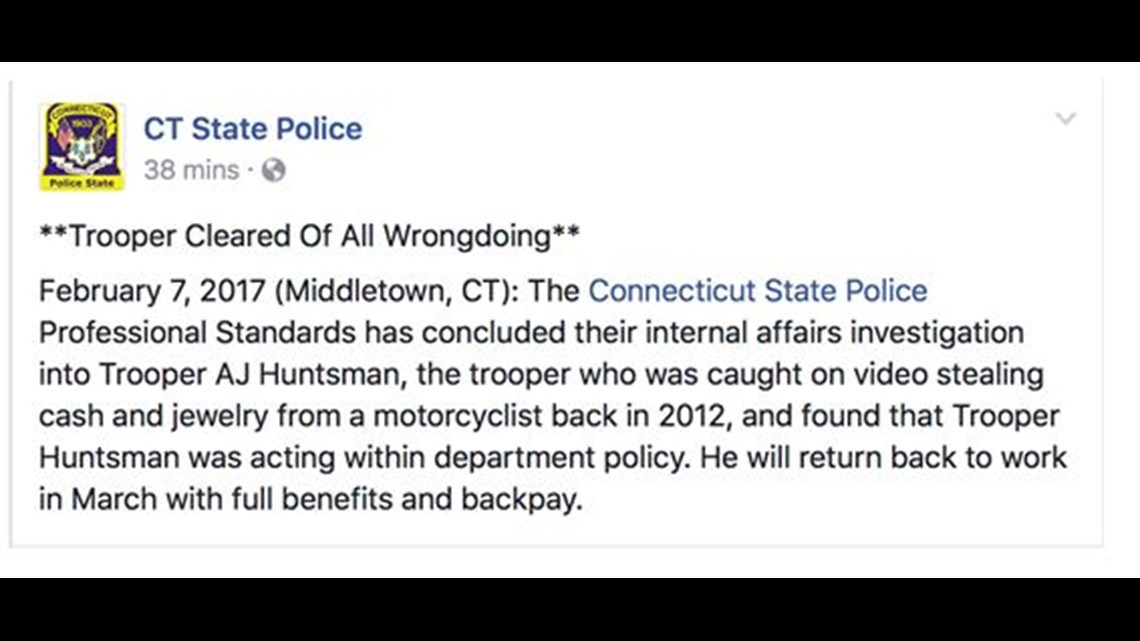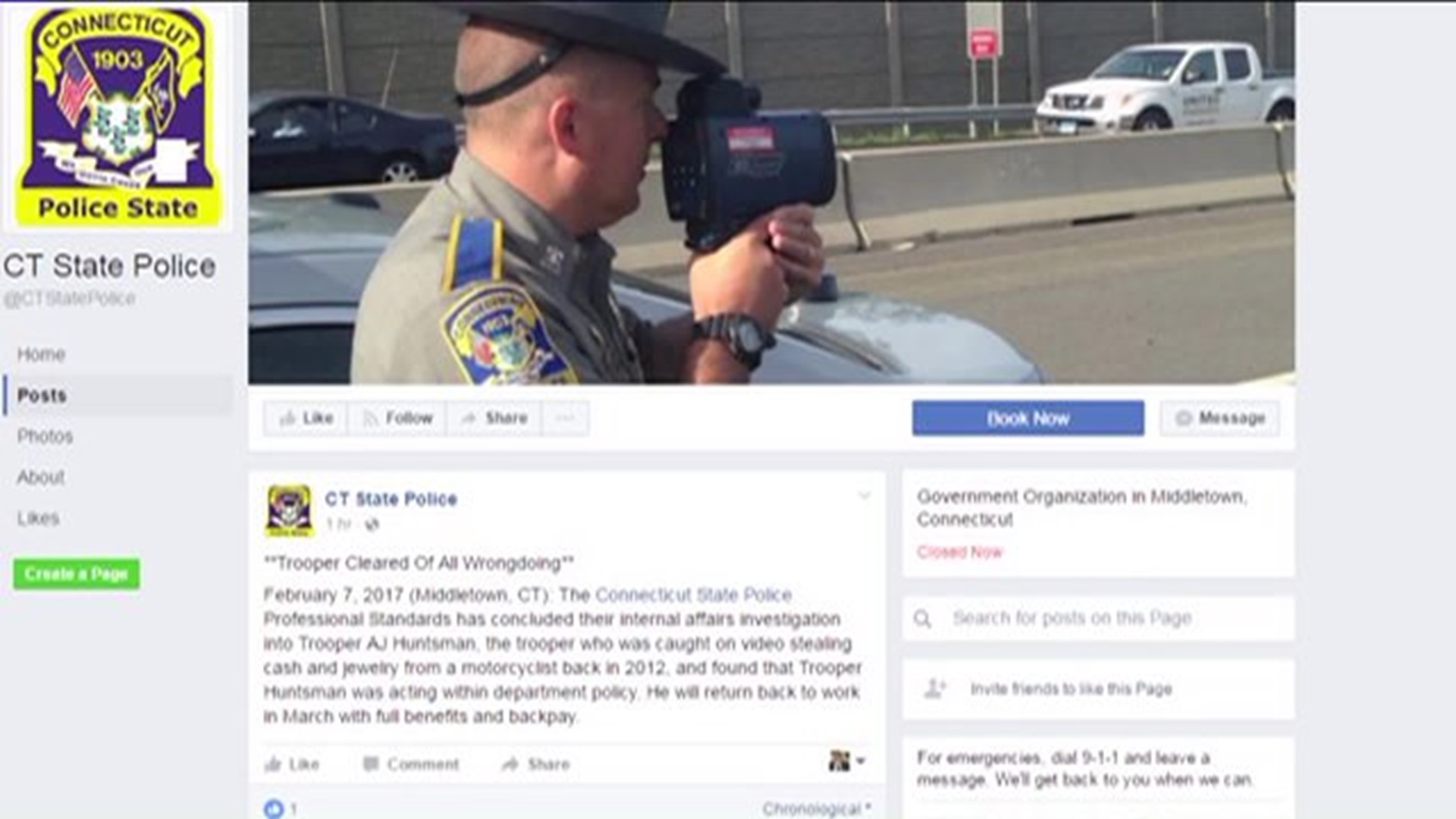MIDDLETOWN -- Connecticut State Police gained control of a situation where somebody has set up a fake "CT State Police" page on Facebook.
The page has since been removed.
Trooper First Class Kelly Grant of the Connecticut State Police Public Information Office said in a statement that the Facebook page "is NOT a Connecticut State Police Facebook page. Unfortunately 'Gabriel Starr' has moved from posting derogatory comments under the official Connecticut State Police Facebook page posts to creating his own CSP page."
The post Grant was referring to specifically was:


Other posts on the site reference minority hiring, quotas for speeding tickets and getting out of speeding tickets.
This page raised concern for police who compared the fake page to a scam.
“People are going to believe that what they’re being presented is the real information,” Connecticut State Police Sgt. Eric Haglund said. “If they believe that’s the real information, they’re going to go there for information, advice and how to respond to situations. That could be a public safety concern if misinformation is getting out.”
Hartford Police Deputy Chief Brian Foley said a similar incident happened to him in which a Facebook profile was created pretending to be him posting inappropriate things.
“Within hours, on the one that was created with my persona, 60-70 comments had gone up on one of the pictures that they posted there,” he said. “Certainly damaging to my reputation and something I took very seriously.”
He said he handled the situation by getting in front of it and immediately letting his followers know it was not his account.
The city’s crime center got involved and Facebook took the page down but Deputy Chief Foley said this could have created harm to his reputation or to groups the posts were targeting.
Foley said chasing down an arrest in this case would be difficult.
“The site wasn’t use to create any sort of financial value or wasn’t used to physically harm another and that's why it becomes problematic to convict,” Foley said. “When you start arresting people for practical jokes that don’t show physical damage or monetary damage it becomes a First Amendment issue.”
First Amendment Attorney Jay Marshall Wolman said there’s a difference between private and public repercussions to creating fake Facebook accounts or posting on someone else’s behalf.
“Free speech is as it sounds, anything you say is lawful to be said where the government cannot take action against you unless it fits within some pre-prescribed category of unprotected speech such as a true threat,” Wolman said. “It does not insulate you from private repercussions if you say something that's offensive, nobody has to give you a job.”
He said since Facebook is a private entity, if they want to suspend a page or ban a user, they can do so.
“The first amendment is not about the speech you like and want to support, but the rights enshrined in there are about protecting what you do not like. Because if you cannot protect that, the speech you like is similarly unprotected,” he said.
Haglund recommends you look for the verification badge on a Facebook or Twitter page, which is a blue/gray checkmark, confirming the page is legitimate.
“It's important to remember that this does exist, fake profiles do exist whether they’re businesses or people reaching out to you and you can do your diligence to make sure you’re using a reliable verified source,” he said.
Click here, if you want to report a fake account to Facebook.

